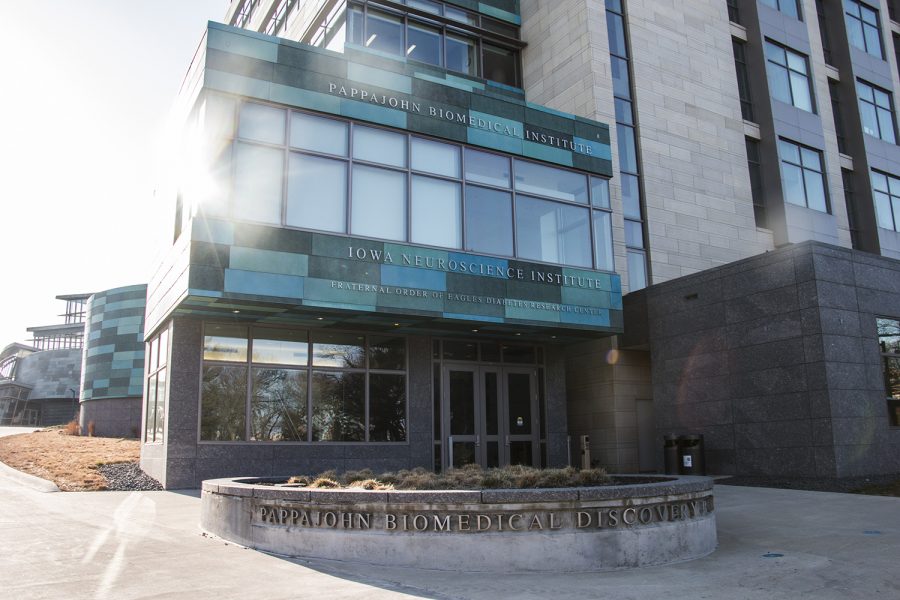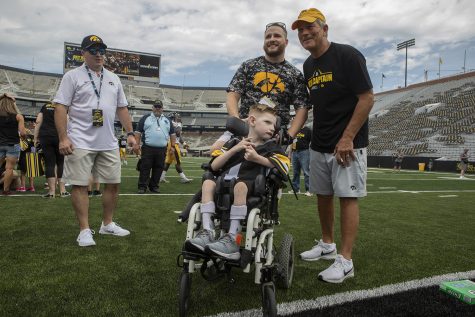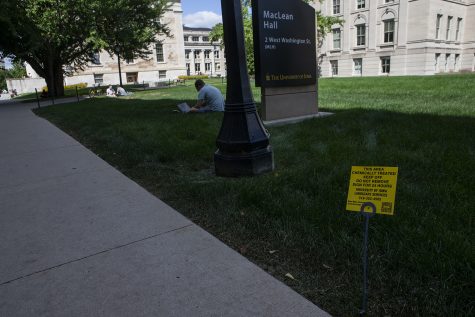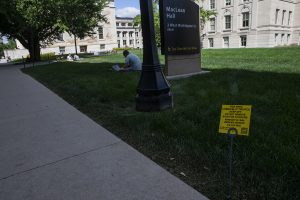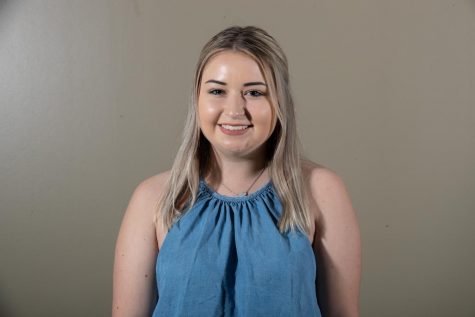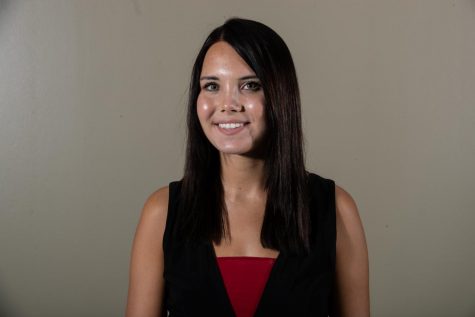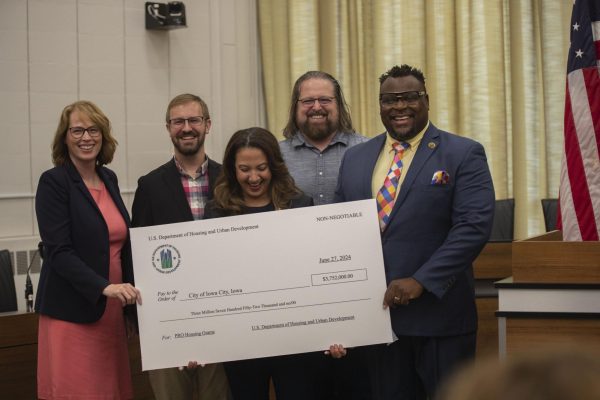Brain stimulation helps treat Parkinson’s patients, UI researchers say
Neuromodulation, the stimulation of one’s brain, has been found to treat Parkinson’s disease, and depression. Researchers from all over the world, including many from the University of Iowa, will attend a neuroscience conference this weekend to discuss treatments and its effectiveness.
The Pappajohn Biomedical Discovery Building is seen on April 17, 2018.
September 12, 2019
A new procedure found that stimulation to the brain has proved to help patients with Parkinson’s disease and depression.
Nandakumar Narayanan, University of Iowa assistant director in the Clinical Neuroscientist Training Program in Neurology, said current neuroscience specialists treat brain disorders primarily with oral drugs.
“One reason that we haven’t done well treating brain disorders is that this is really hard,” Narayanan said. “Many of the drugs that are effective have intolerable side effects.”
However, Narayanan said that an exciting therapeutic direction for treating brain disorders lies in a new technique called neuromodulation.
“Basically, that is delivering targeted brain stimulation to the circuits that are dysfunctional,” Narayanan said. “It might sound crazy, but it is something we do all the time for Parkinson’s disease, essential tremors, and dystonia.”
UI neurosurgery chair Jeremy Greenlee said the modulation is a way of altering body functions, which often comes from electrical stimulation.
RELATED: UI adds a new neuroscience major
“These wires have stimulating contacts,” Greenlee said. “You can bury the stimulation parameters and change the voltage or change the frequency or change the locations of where the brain stimulates.”
Greenlee said the team of researchers is unsure why this method of stimulation works, but they know that it helps with the stimulation of the brain.
Narayanan said transcranial magnetic stimulation is also a type of stimulation that is leading to successful results in patients.
“The University of Iowa is a leader in these technologies, and we are researching all kinds of ways they can be applied more broadly,” Narayanan said. “This conference is bringing leaders from all over the country to figure out how we can apply neuromodulation to new diseases and to do it better.”
RELATED: UI neuroscience researchers share new treatments, unexpected discoveries at faculty TED talks
A conference — the product of the Iowa Neuroscience Institute and supported by the Carver Charitable Trust — will take place Saturday and Sept. 15 at the Graduate Hotel, 210 S. Dubuque St., to discuss treatments, Narayanan said.
He also said the mission of the institute is to bring together researchers, clinicians, and others locally and nationally to come up with new solutions to difficult problems.
“Brain diseases are incredibly difficult problems,” Narayanan said. “Iowa is already a little older than the general population of the United States, so Iowa is already going to have problems that are really challenging.”



